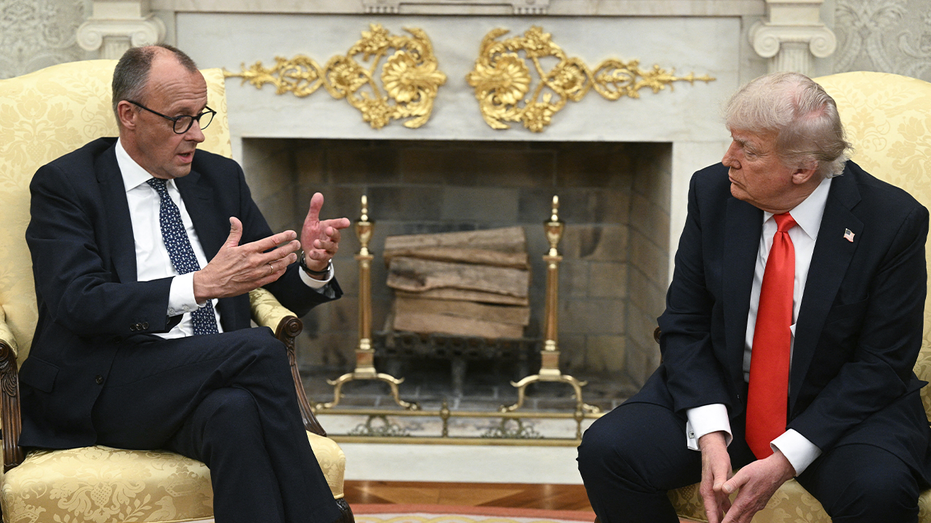Merz Praises US Strength to Counter Putin While Trump Suggests Letting Them Fight It Out
Trump likens Ukraine war to children fighting in a park, while German Chancellor Merz urges him to use his influence to end the conflict.

German Chancellor Friedrich Merz met with President Donald Trump in a high-profile discussion centered on the ongoing war in Ukraine, with Merz urging greater American leadership to end the conflict. The talks took place as the world marks the anniversary of D-Day, a historical reminder of U.S. involvement in turning the tide of global conflict during World War II.
During their meeting, Chancellor Merz emphasized that “America is again in a very strong position to do something on this war and ending this war,” referencing the critical role of the United States in past international crises. He reiterated Germany’s readiness to cooperate, saying, “We are ready to do what we can.” Merz also called for unified action and increased pressure on Russia, coordinating closely with European allies and underlining the importance of transatlantic cooperation.
President Trump responded with an unexpected analogy, comparing the Russia-Ukraine war to a playground fight between two children. “Sometimes you see two young children fighting like crazy – they hate each other, and they're fighting in a park, and you try and pull them apart, they don't want to be pulled,” Trump said. He suggested that it might be “too early” to intervene fully, hinting that letting the two sides continue fighting could have its own merits. Trump added he relayed this analogy in a recent call with Russian President Vladimir Putin, telling him “maybe you’re going to have to keep fighting and suffering a lot.”
This stance drew questions from reporters, especially in light of Merz’s strong track record supporting Ukraine, including lifting Germany’s strike bans to aid Kyiv’s defense. When asked whether he agreed with Trump’s suggestion to let the fighting continue, Merz diplomatically avoided direct confrontation but made his position clear. “I think we both agree on this war and how terrible this war is. And we are both looking for ways to stop it very soon,” he stated. The chancellor reiterated his belief that President Trump has a unique ability to exert pressure on Russia and encouraged continued joint efforts between Europe and the United States.
“We are all… having the duty to do something on that now, to stop it after three and a half years, which is really terrible,” Merz added, underscoring the urgency and humanitarian toll of the conflict. He left no doubt about Germany's commitment to Ukraine, concluding, “We are on the side of Ukraine, and we are trying to get them stronger and stronger just to make Putin stop this war. This is our approach.”
The sharp differences in tone between the leaders’ approaches signal an ongoing debate within the Western alliance about how best to confront Russia and bring the war in Ukraine to an end. As calls for action grow louder, the world will be watching closely to see whether the U.S. and its European partners can achieve a unified strategy.




